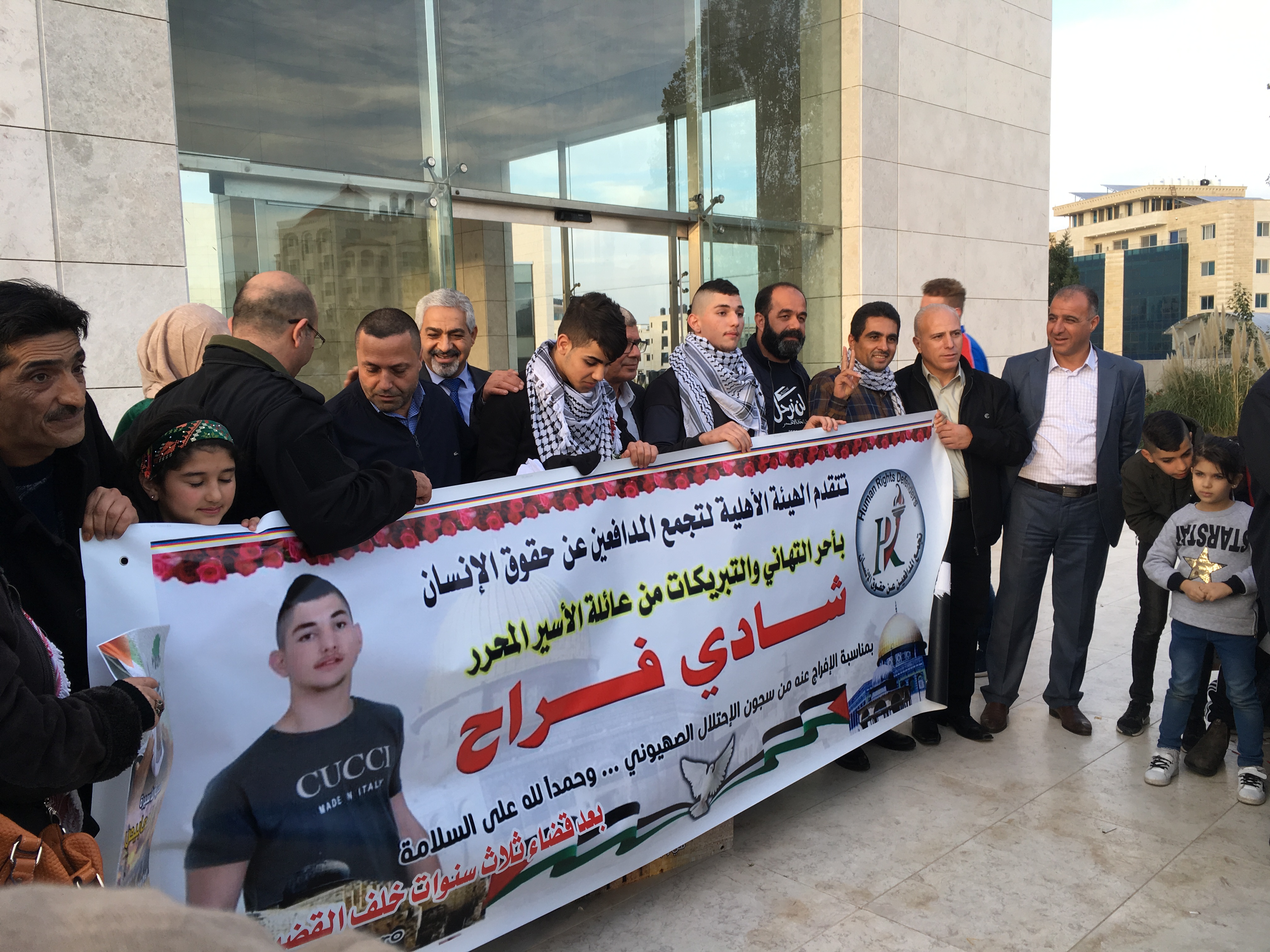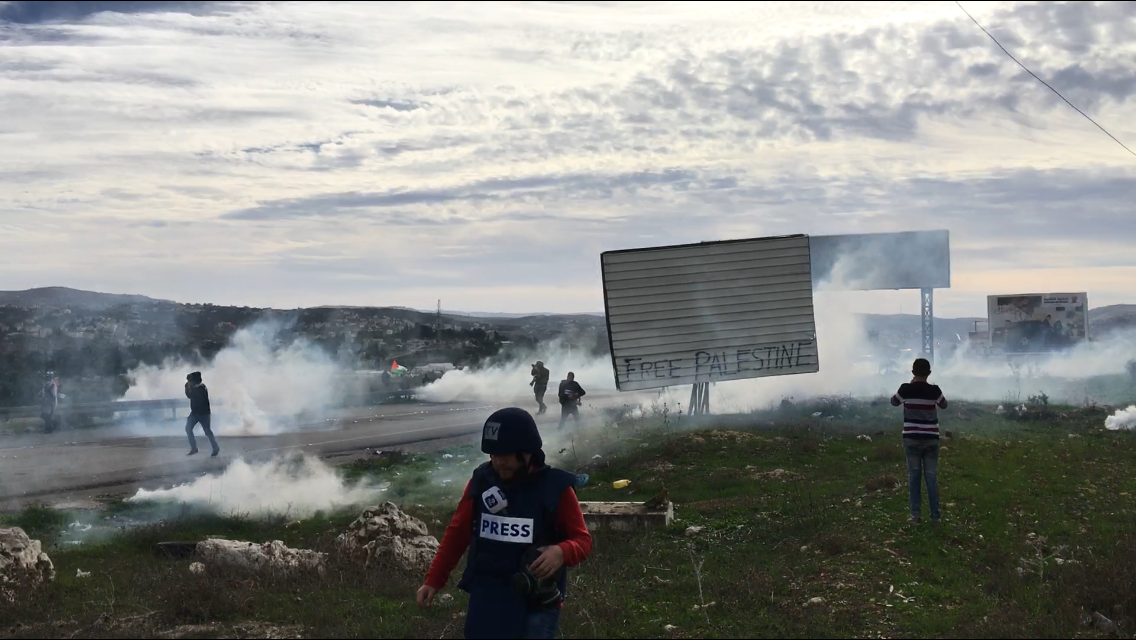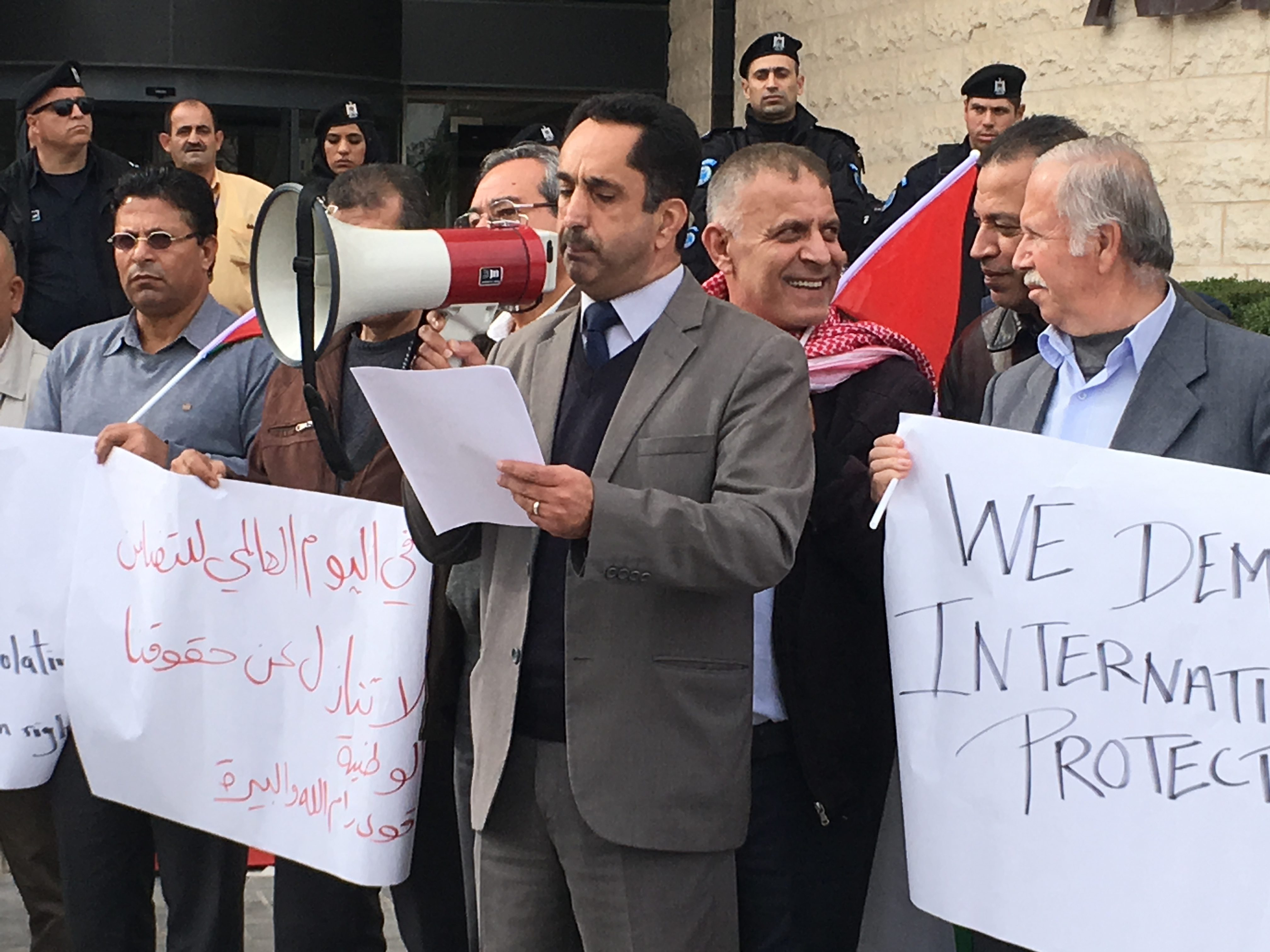Category: Reports
-
Shadi Farah and Ahmad Zaatari are finally released from Israeli Jail
3rd December 2018 | International Solidarity Movement, Ramallah Team | Ramallah, Occupied Palestine
-
Once again, a non-violent, Palestinian-lead demonstration was met with Israeli Police violence.
2nd December 2018 | International Solidarity Movement, Nablus team | Nablus, Occupied Palestine Once again, Palestinians exercised their right of free speech under international law, and once again, were encountered with tear gas and gunfire. Outside Nablus, demonstrations took place against the continuous construction of Israeli settlements and outposts, imprisonment of Palestinians- young and old- and…
-
It’s International Day of Solidarity with the Palestinian People, but Israel still lays claim to the longest occupation of our time
30 November 2018 | International Solidarity Movement, Ramallah team | Ramallah, occupied Palestine November 29 marks the 71st anniversary that the UN General Assembly adopted Resolution 181 in 1947, which later became known as “International Day of Solidarity with the Palestinian People.” Leaders in Ramallah called on the UN to recognize that resolution, during a…



